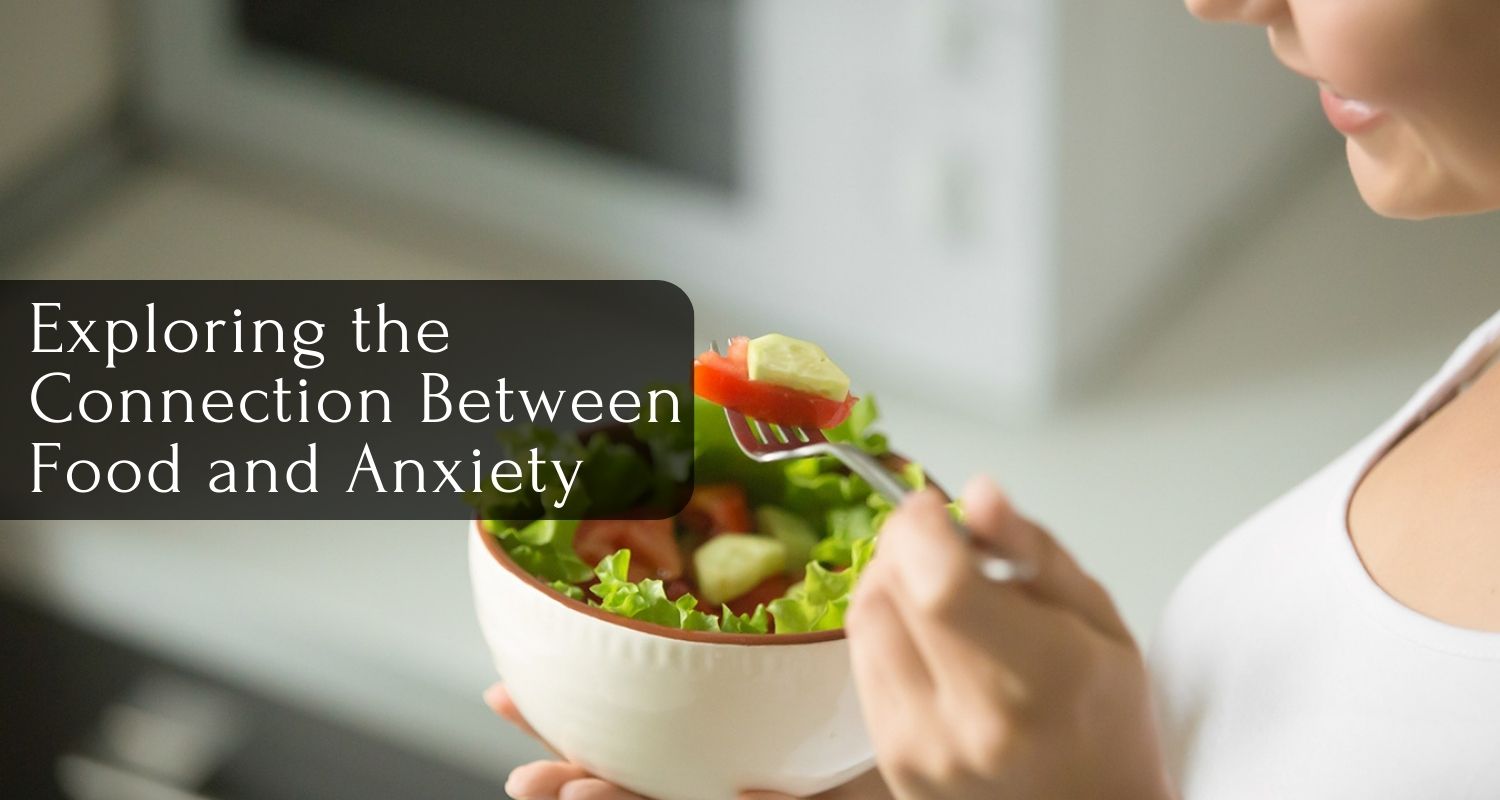In our fast-paced, modern world, the prevalence of anxiety has become a common concern for many individuals. While various factors contribute to anxiety disorders, the role of diet is gaining increasing attention.
The connection between what we eat and how we feel is profound, and understanding the impact of certain foods on anxiety can be a crucial step toward managing and alleviating symptoms.
In this blog post, we’ll delve into the intricate relationship between food and anxiety, exploring foods linked to anxiety and those that reduce anxiety and depression.
The Relationship Between Food and Anxiety
The intricate relationship between food and anxiety is a subject of growing importance in the realm of mental health. Our dietary choices profoundly impact the complex biochemical processes within the body, influencing neurotransmitter production, inflammation levels, and overall physiological balance.
Certain foods, such as highly processed and sugary options, have been linked to increased anxiety, potentially exacerbating symptoms through mechanisms like inflammation and blood sugar fluctuations.
Conversely, a mindful selection of nutrient-dense foods rich in omega-3 fatty acids, whole grains, and antioxidants has shown promise in mitigating anxiety. Recognizing the power of our plates in shaping mental well-being opens avenues for personalized approaches to anxiety management, emphasizing the transformative potential of adopting a nourishing and balanced diet.
Foods Linked to Anxiety
It’s not uncommon to find solace in comfort foods during times of stress, but what if these very foods are exacerbating our anxiety? Research suggests that certain dietary choices may be linked to an increased risk of anxiety disorders.
- Highly Processed Foods: Highly processed foods laden with artificial additives, preservatives, and unhealthy fats have been associated with higher anxiety levels. These foods may contribute to inflammation in the body, impacting physical and mental health.
- Excessive Caffeine Intake: While a cup of coffee can provide a temporary energy boost, excessive caffeine intake can trigger anxiety symptoms. Caffeine is a stimulant that can lead to increased heart rate, restlessness, and jitteriness, which are all associated with anxiety.
- Sugary Treats: Sugary snacks and desserts may offer momentary pleasure, but the subsequent crash in blood sugar levels can negatively impact mood and contribute to feelings of irritability and anxiety.
Foods That Reduce Anxiety and Depression
On the flip side, making mindful choices about what we eat can positively impact mental health. The following foods that help with anxiety are often recommended; some of them are :
- Omega-3 Fatty Acids: Found in fatty fish such as salmon, mackerel, and sardines, omega-3 fatty acids are known for their anti-inflammatory properties. Research suggests that a diet rich in omega-3s may be associated with a lower risk of anxiety and depression.
- Whole Grains: One of the foods that reduce anxiety fast is complex carbohydrates found in whole grains, such as brown rice, quinoa, and oats, which can help regulate serotonin levels in the brain. Serotonin is a neurotransmitter that plays a key role in mood regulation.
- Leafy Greens and Vegetables: Packed with vitamins, minerals, and antioxidants, leafy greens and vegetables support overall health and may contribute to a lower risk of anxiety. Magnesium, found in abundance in leafy greens, has been linked to anxiety reduction.
- Probiotics: The gut-brain connection is a fascinating area of study, and maintaining a healthy gut microbiome through probiotics found in yogurt, kefir, and fermented foods may positively impact mental health.
- Nuts and Seeds: Almonds, walnuts, and sunflower seeds are rich in nutrients like magnesium, zinc, and omega-3 fatty acids, all of which have been associated with a lower risk of anxiety.
- Chamomile Tea: Known for its calming properties, chamomile tea has been used for centuries to promote relaxation and alleviate anxiety symptoms. Sipping on a warm cup of chamomile tea can be a soothing ritual before bedtime.
- Dark Chocolate: Dark chocolate contains flavonoids, which have been linked to improved mood and reduced stress. In moderation, the consumption of dark chocolate can be a delightful way to indulge while providing potential anxiety relief.
- Turmeric: The active compound in turmeric, curcumin, has anti-inflammatory and antioxidant properties. Including turmeric in your diet, either through spice or supplements, may reduce anxiety.
- Fatty Fish: In addition to omega-3 fatty acids, fatty fish like salmon and trout contain vitamin D, which has been associated with a lower risk of depression and anxiety.
Anti-Anxiety Diet: A Holistic Approach
Building an anti-anxiety diet involves more than just focusing on individual foods. It’s about adopting a holistic approach considering overall dietary patterns and lifestyle choices.
Here are some guidelines for creating an anti-anxiety diet:
- Balance Macronutrients: Ensure a balanced intake of carbohydrates, proteins, and fats. Avoid extreme diets that eliminate entire food groups, as they can negatively impact mood and energy levels.
- Stay Hydrated: Dehydration can contribute to feelings of fatigue and irritability, which may exacerbate anxiety. Aim to drink an adequate amount of water throughout the day.
- Mindful Eating: Pay attention to your body’s hunger and fullness cues. Engage in mindful eating practices, savoring each bite and eating without distractions.
- Limit Stimulants: Reduce the intake of stimulants such as caffeine and nicotine, especially in the evening. These substances can interfere with sleep and contribute to heightened anxiety.
- Incorporate Adaptogens: Adaptogens are herbs and roots that may help the body adapt to stress. Examples include ashwagandha and rhodiola. Consult with a healthcare professional before incorporating these into your routine.
Conclusion
In the intricate dance between food and anxiety, our dietary choices play a significant role. While certain foods may contribute to heightened anxiety levels, others can provide relief and support mental well-being.
Adopting an anti-anxiety routine involves making mindful choices, emphasizing whole, nutrient-dense foods, and considering the holistic impact of our lifestyle choices.
As we continue to unravel the mysteries of the mind-body connection, embracing a nourishing approach to food becomes a powerful tool in the quest for mental health and well-being.

